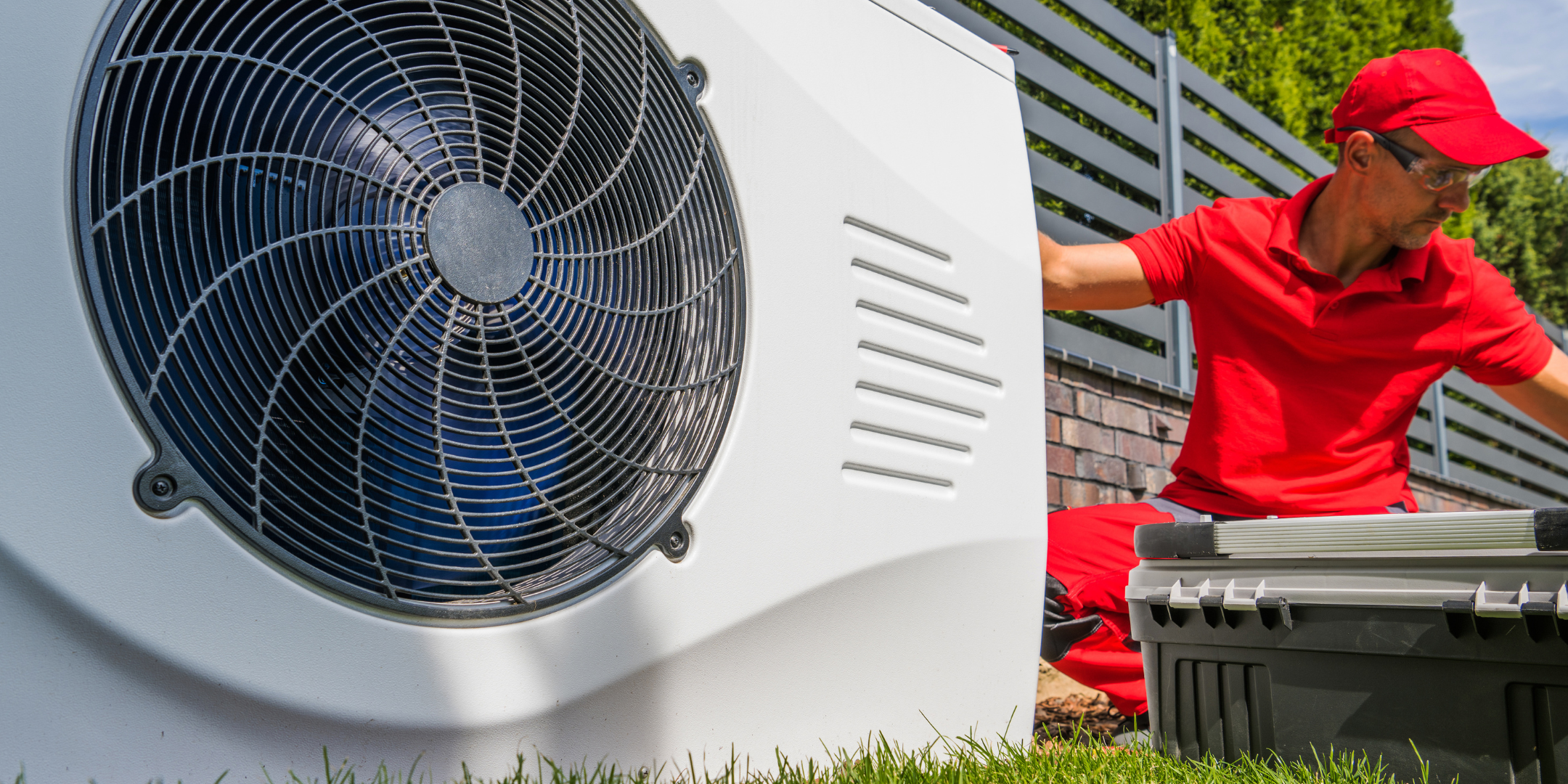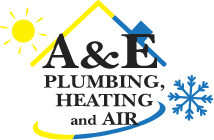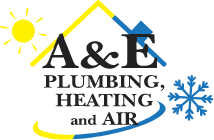
You’re probably wondering, “How long does an HVAC system really last?” You might hear conflicting answers—10 years, 20 years, or “keep it until it quits.” But no one wants their heat to quit on them during a cold Oregon night. That’s why it’s important to understand the typical lifespan of an HVAC system and how to know if yours is on its way out.
answers—10 years, 20 years, or “keep it until it quits.” But no one wants their heat to quit on them during a cold Oregon night. That’s why it’s important to understand the typical lifespan of an HVAC system and how to know if yours is on its way out.
By the end of this article, you’ll know how long HVAC systems usually last, the signs your system might need replacing, and ways to extend its life. At A&E Plumbing, Heating & Air, we’ve been working with HVAC systems for over 16 years, and we’ve seen it all—from systems that are still chugging along after 25 years, to ones that broke down within the first decade. Let’s dive in and figure out if your HVAC system is ready for retirement.
How Long Does an HVAC System Last?
The quick answer: it depends. But on average, most HVAC systems last between 15 to 20 years. That sounds simple enough, but several factors can influence where your system falls on that spectrum.
HVAC Lifespan Breakdown:
- Furnaces: These typically last 15 to 20 years. In Oregon’s relatively mild winters, some systems can push beyond that with proper care.
- Air Conditioners: Expect 10 to 15 years. They usually wear out faster than furnaces since they handle intense summer heat.
- Heat Pumps: With 10 to 15 years of life, heat pumps can age more quickly if used for both heating and cooling year-round.
So, why do some HVAC systems last longer than others? Let’s explore the key factors that impact their lifespan.
Why Do Some HVAC Systems Last Longer Than Others?
If you’ve got one neighbor whose system is still going strong after 25 years, while another’s gave up after 10, there are a few reasons why.
Maintenance
Think of your HVAC system like a car—you wouldn’t drive it for years without an oil change, right?
Regular maintenance is crucial to keeping your system running efficiently. Yearly tune-ups can catch minor issues before they become big, expensive problems. On the other hand, if you skip maintenance, your system might start breaking down sooner than expected.
Climate
Your system’s workload depends on where you live. In places like Oregon, specifically the PNW, where we see a bit of everything—rain, cold, sun—your heating system tends to work harder than your cooling system.
If your HVAC system is constantly cycling through extreme temperatures, it’s going to wear out faster than one in a milder climate.
Installation
Good installation sets your HVAC system up for success. A poor installation, however, can lead to problems down the road—issues that might not show up until years later.
A properly installed system will run smoothly and last longer than one that wasn’t set up right from the start.
Is It Time to Replace Your HVAC System?
Here’s the million-dollar question: Is it time to replace your HVAC system? There are a few signs to watch for that might tell you it’s time to retire your current system.

HVAC System Age
If your HVAC system is over 15 years old, you’re living on borrowed time with it. While it might still be operational and providing the heating or cooling you need, that doesn’t guarantee it won’t suddenly fail when you need it the most, such as during a particularly cold winter night or a sweltering summer day.
As these systems age, they tend to lose their efficiency, meaning they have to work harder to maintain the desired temperature in your home, which can lead to increased energy consumption and higher utility bills.
Additionally, older systems are more susceptible to frequent breakdowns and malfunctions, which can result in inconvenient and costly repairs. This increased likelihood of failure and inefficiency is why it’s crucial to monitor the performance of an aging HVAC system closely and consider planning for a replacement before it becomes an urgent necessity.
Constant Repairs
If you’ve become a regular at your HVAC tech’s office, that’s a bad sign.
This pattern of frequent repairs is not only inconvenient, disrupting your daily routine and comfort, but it also becomes a financial burden over time. Each repair can add up, leading to significant expenses that might not be justifiable in the long run.
Instead of continuously patching up your system with temporary fixes, which may only provide short-term relief, it might be more prudent to consider investing in a new HVAC system. A new system can offer improved efficiency, reliability, and peace of mind, ultimately saving you money and hassle in the future.
Rising Energy Bills
Have your energy bills been creeping up even though you haven’t changed your heating or cooling habits? That’s a sign your HVAC system is working harder than it should to maintain your home’s temperature, which often happens as systems age and become less efficient.
Strange Noises
Have you been hearing strange noises like weird rattling, banging, or high-pitched squealing coming from your HVAC system? If your system sounds like it’s struggling, it probably is—and it might be time for an upgrade.
Such noises often suggest that your HVAC system is struggling to function properly, possibly due to worn-out components, loose parts, or other underlying issues that need immediate attention. Ignoring these sounds could lead to more significant problems down the line, potentially resulting in a complete system failure when you least expect it.
3 Ways to Extend the Life of Your HVAC System
Nobody wants to replace their HVAC system before they have to. The good news? There are a few things you can do to keep your system running longer and avoid those dreaded replacements.
1. Regular Maintenance
Yes, we’re bringing this up again because it’s that important. Regular maintenance is like giving your HVAC system a checkup—it keeps everything running smoothly and prevents bigger issues down the line. And no, skipping it won’t make the problems go away.
2. Change Your Filters
Changing your air filters regularly (every 1-3 months) is a simple but effective way to keep your system efficient. Clean filters help your HVAC system breathe easier and work better, which can add years to its life.

3. Upgrade Before It’s Too Late
Sometimes, it’s better to upgrade before your system completely fails. Newer HVAC systems are much more energy-efficient, which means lower energy bills for you. Plus, you might be eligible for energy rebates that help make the investment more affordable.
Is Your HVAC System Ready for Retirement?
So, is it time for your HVAC system to retire? The truth is, HVAC systems usually last between 15 to 20 years, but if yours is older than that, constantly breaking down, or sending your energy bills through the roof, it might be time for a new one.
At A&E Plumbing, Heating & Air, we’ve been helping homeowners with HVAC solutions for over 16 years, and we’ve seen firsthand how important it is to have a reliable system. If you’re not sure whether to repair or replace your HVAC system, we’re here to guide you through the decision-making process.
What’s next? If you’re ready to learn more about what affects your HVAC system’s lifespan and how you can extend it, check out our article, ‘What Affects the Lifespan of Your HVAC System?’ It’s packed with helpful tips on keeping your system running longer, even in Oregon’s unpredictable weather.
Daphne Hunt holds a bachelor's degree in English and Mass Communication and has a lifelong passion for writing. She thrives on using her skills to craft compelling pieces that inform, inspire, and connect with readers.


